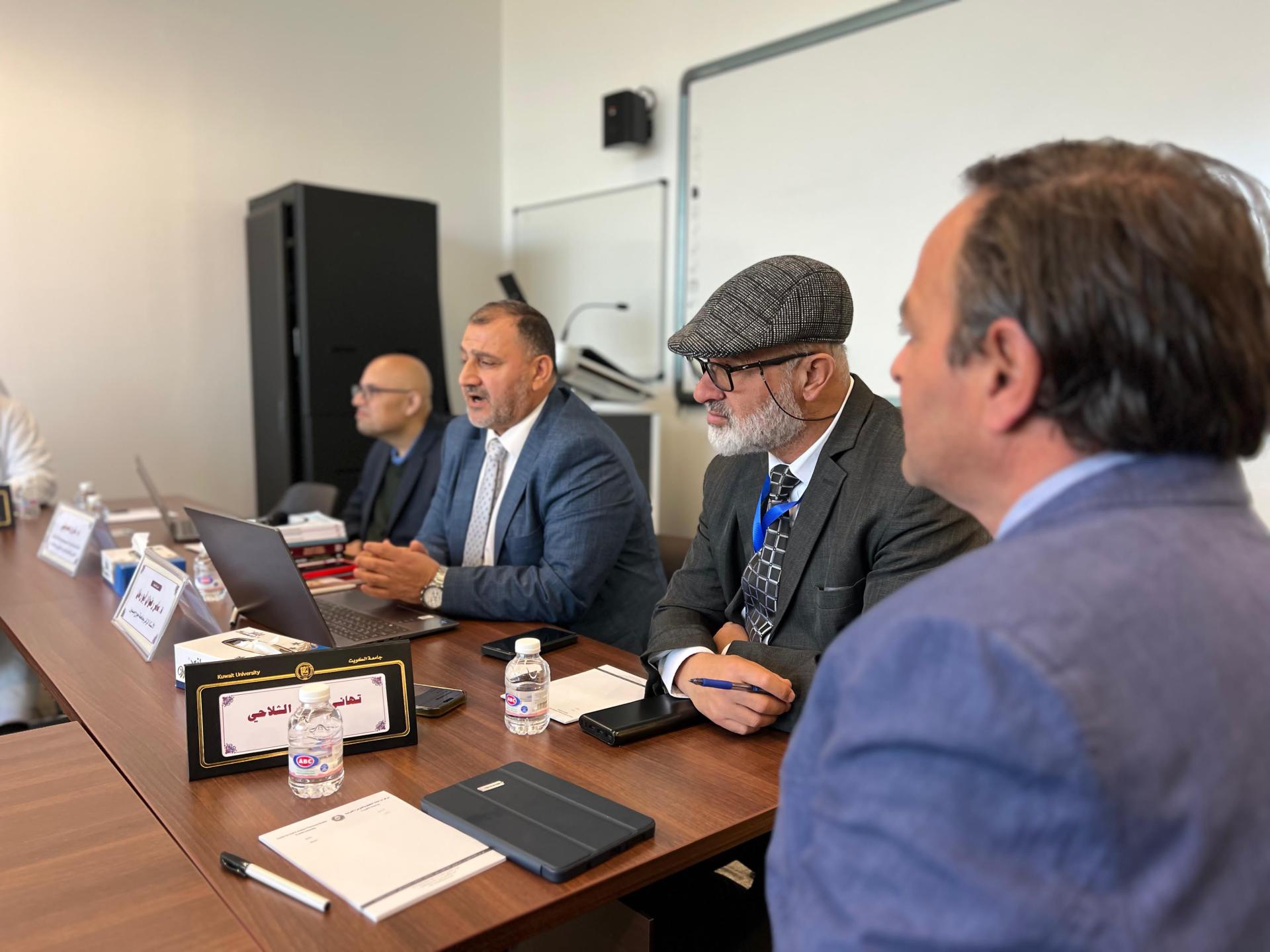
The Center for Gulf and Arabian Peninsula Studies at Kuwait University, in cooperation with George Mason University and the United Mission for Relief and Development (UMR), organized a lecture entitled "The Role of Research and Studies in Developing the Field of Philanthropy in Kuwait", in the presence of Acting Director of the Center for Gulf and Arabian Peninsula Studies, Prof. Yaqoub Yousef Al-Kandari. The lecture was presented by Assistant Professor of Philanthropy and Director of the Islamic Philanthropy Initiative at Lilly Family School of Philanthropy at Indiana University, Prof. Shariq Siddiqui, and the lecture was moderated by Visiting Professor at George Mason University, Dr. Samer Rudwan Abu Rumman, and several charitable societies, with the aim of spreading the community culture in developing philanthropy.
At the beginning, Acting Director of the Center for Gulf and Arabian Peninsula Studies, Prof. Yaqoub Yousef Al-Kandari, welcomed Prof. Shariq Siddiqui in this seminar, pointing out that Kuwait is a pioneer and has a latent power in philanthropy, stressing the keenness of the Gulf and Arabian Peninsula Studies Center to hold such lectures that connect Kuwait University to various community issues, including the philanthropy, as approximately 24 charitable societies participated in this seminar.
For his part, Assistant Professor of Philanthropic Studies and Director of the Islamic Philanthropic Work Initiative at the Lilly Family School of Philanthropy at Indiana University, Prof. Shariq Siddiqui, thanked Kuwait University, represented by the Gulf and Arabian Peninsula Studies Center, for holding this event, praising the university's keenness to make the research aspect a part of developing the philanthropic sector in Kuwait and promoting its strength and effectiveness. He spoke about the role of research and studies in developing the field of philanthropic work in Kuwait, expressing his admiration for the university campus and its excellent facilities.
He also expressed his happiness with the discussion that took place among many participants regarding the moral ways in which charitable societies can develop and how research and studies can make a difference in philanthropic work.
The lecture also included a segment for questions and inquiries


 Colored
Colored Grayscale
Grayscale

